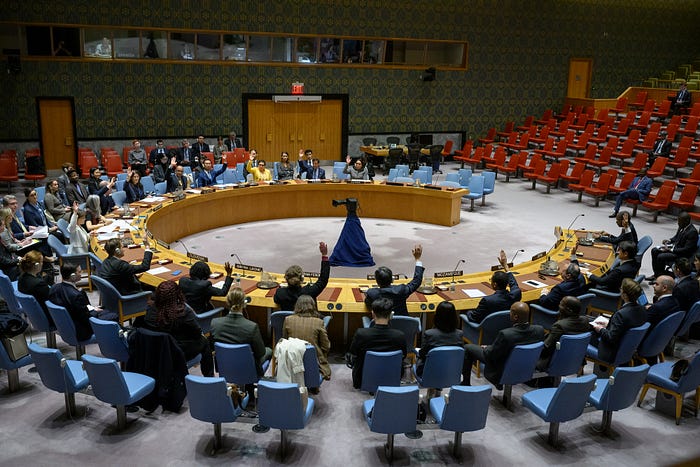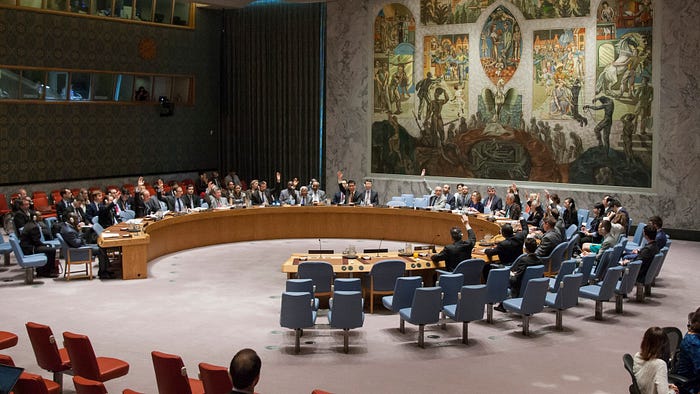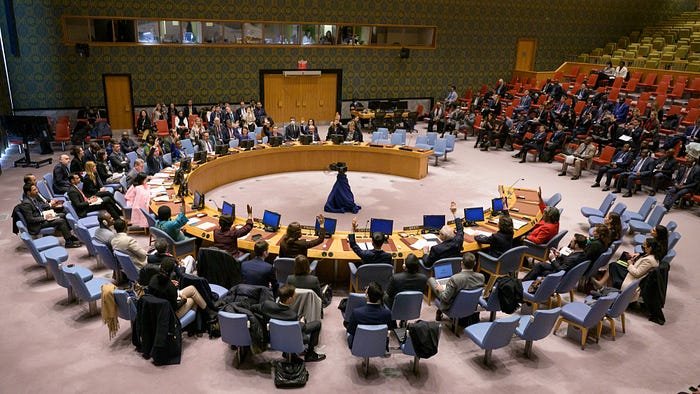Assistant Secretary-General for Europe, Central Asia and the Americas Miroslav Jenča
Remarks to the Security Council
On the Maintenance of Peace and Security of Ukraine
New York, 29 June 2025
Mr. President,
Yesterday, the Secretary-General condemned the Russian Federation’s overnight missile and drone attacks that killed and injured many civilians, including children, across Ukraine.
According to Ukrainian officials, the Russian Federation launched 598 drones and 31 missiles against Ukraine overnight between 27 and 28 August.
In the capital city of Kyiv, at least 23 people, including four children aged between two and 17, were reportedly killed. At least 64 people, including seven children, were injured.
Several buildings were damaged in 33 locations across all 10 districts of the city.
Most of the fatalities occurred in the Darnytskyi district of Kyiv, where a missile reportedly struck a five-story residential building, demolishing it from the first to the fifth floor.
The attack also severely damaged the diplomatic premises of the delegation of the European Union in Kyiv and the British Council building.
Across Ukraine, air raid sirens kept residents awake seeking shelter in nearly all regions of the country.
Civilian casualties were reported in Chernihiv, Kharkiv, Zaporizhzhia, Donetsk and Kherson regions of Ukraine. In Vinnytsia region, a Russian attack reportedly struck a train depot.
Yesterday’s strikes are only the latest in the brutal escalation of country-wide aerial attacks.
Just a week ago, overnight between 21-22 August, Russia reportedly launched 574 drones and 40 missiles on Ukraine.
As a result, one person was killed in the western city of Lviv.
In the south-western Transcarpathia region, 15 people were wounded.
These strikes on regions far from the frontlines demonstrate the dangerously expanding geographic scope of this war.
In July, the Office of the High Commissioner for Human Rights (OHCHR) recorded rising civilian casualties across 18 regions of Ukraine and in Kyiv City.
With at least 1,674 civilian casualties - 286 killed and 1,388 injured – July set a new, tragic record for monthly casualties since May 2022.
In total, OHCHR has verified that since the start of the Russian Federation’s full-scale invasion of Ukraine in February 2022, 14,054 civilians, including 730 children, have been killed in Ukraine. 36,164 civilians, including 2,263 children, have been injured.
The impact of the conflict has also spread to the Russian Federation, where local authorities have reported civilian casualties, including in the Belgorod, Kursk and Bryansk regions bordering Ukraine.
On 24 August, Russian officials reported that a fire broke out after a Ukrainian drone was shot down near the Kursk Nuclear Power Plant, damaging a transformer at the site.
We have also seen several reports of Ukrainian strikes on oil refineries inside Russia.
While the United Nations is not in a position to verify these reports, the growing impact of the conflict on the civilian population in the Russian Federation is of concern, too.
We once again reiterate that attacks against civilians and civilian infrastructure violate international humanitarian law. We condemn all such attacks, wherever they occur. They are unacceptable and must end immediately.
Mr. President,
We are also concerned about the impact of the expanding and escalating fighting on the humanitarian situation in Ukraine as we are entering the fourth winter of the full-scale war.
The United Nations remains fully committed to supporting Ukrainian civilians. So far this year, together with our humanitarian partners, we have reached 3.8 million people with aid.
Furthermore, targeted winter support preparations are underway for 1.7 million people through the 2025-2026 Winterization Response Plan.
However, for us to be able to continue our life-saving work, scaled up and flexible donor support is urgently needed.
We also continue to urge the sides to fulfill their obligations under international humanitarian law, and allow for the safe, rapid, and unimpeded humanitarian access to civilians in need – no matter where they are or who controls the territory.
Mr. President,
The mounting death toll and devastation caused by the intensifying fighting over the summer run counter to the significant efforts over the past few months to give diplomacy a chance.
The Secretary-General has welcomed the recent diplomatic efforts led by the United States, including the meeting between the Presidents of the United States and the Russian Federation in Anchorage, on 15 August, and the meeting between the Presidents of the United States and Ukraine and European leaders in Washington D.C. on 18 August.
We have also welcomed the earlier three rounds of direct talks between Ukraine and the Russian Federation in Istanbul between May and July.
We commend the exchanges of prisoners of war that have continued to take place as a result of these contacts. Most recently, on 24 August, an exchange, facilitated by the United Arab Emirates, brought 146 prisoners home from each side.
However, as large-scale attacks against civilians persist and civilian casualties rise, the current diplomatic momentum is at risk of rapidly fading if the focus on the need to end the violence and engage in genuine peace talks is not maintained.
We therefore urge all concerned to urgently de-escalate the situation and to redouble efforts to create conditions for inclusive diplomatic efforts towards a cessation of hostilities and a just peace.
On Sunday, 25 August, Ukraine marked its 34th Independence Day. That day also marked three and a half years of full-scale war for the people of Ukraine and Russia, which has continued to be a source of instability regionally and globally.
We renew the Secretary-General’s appeal for a full, immediate and unconditional ceasefire. A ceasefire that results in a just, comprehensive, and sustainable peace in Ukraine – one that fully upholds Ukraine’s sovereignty, independence and territorial integrity, in line with the UN Charter, international law and relevant UN resolutions.
The United Nations remains ready to support all efforts to this end.
Thank you.



